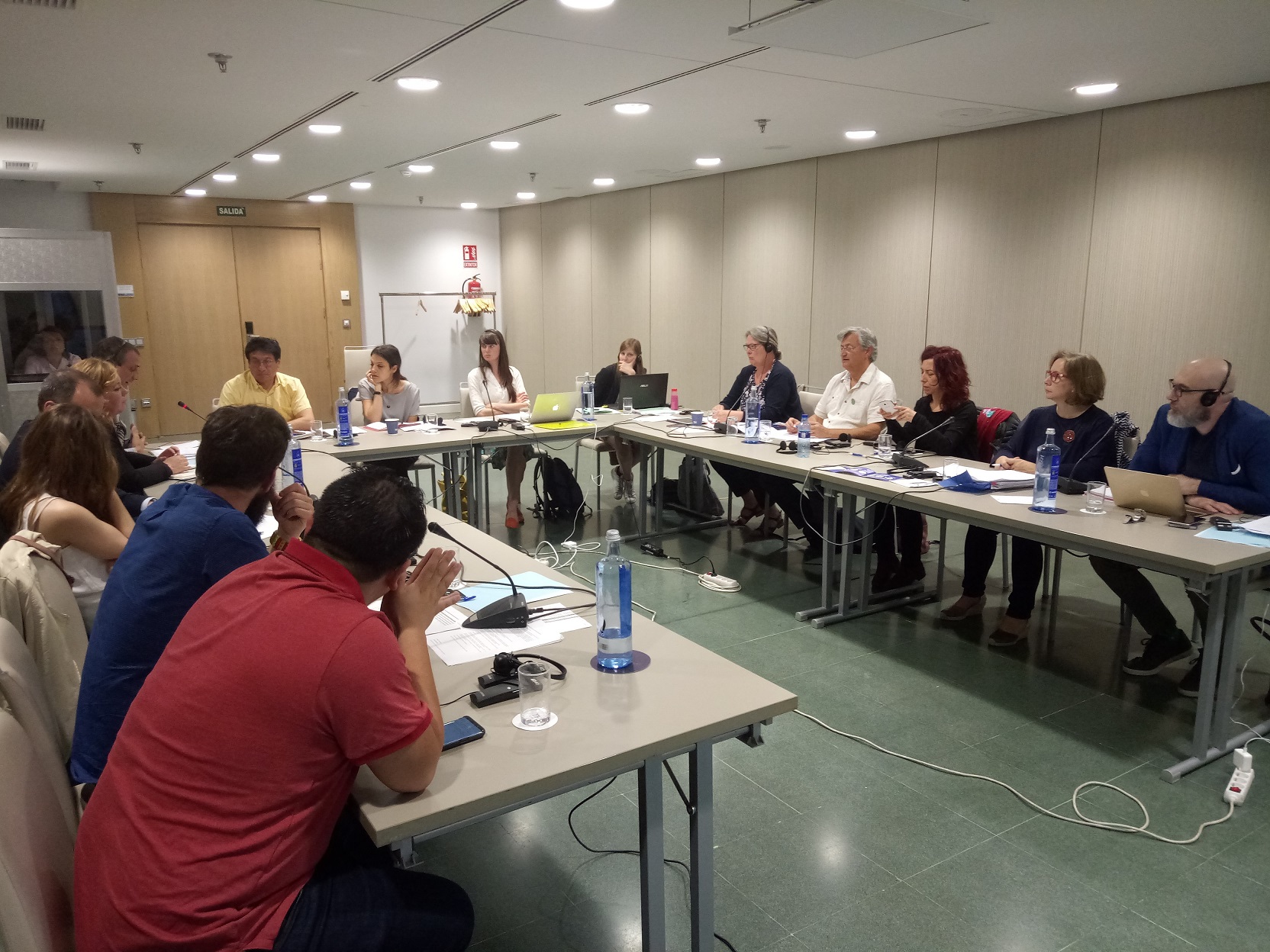Social partners promoting effective integration of migrants and refugees in education: 1st case study in Spain
Published:
On 16 and 17 May 2018, the first case study for the identification of challenges, concrete ways and joint social partners’ initiatives to effectively integrate migrants and refugees in education took place in Madrid, Spain, organised with the support of the ETUCE member organisation FeSP-UGT, partner to the project “European Sectoral Social Partners in Education promoting effective integration of migrants and refugees in education”. The study delegation, including ETUCE and EFEE representatives, the research expert accompanying the project as well as a video-maker and one representative from the project advisory group in Denmark (DLF) had the opportunity to learn more about good practices and challenges in the Spanish education system with regards to policies on inclusion and integration.
Setting the context of the study visit, participants learned from Spanish representatives about the impact of enduring budget cuts, education system segmentation and the lack of a national strategy addressing specifically the integration of migrants and refugees in schools and education institutions. While learning from the different social partners, school communities, parents and students representatives’ perspectives and good practices in the course of the first day, the delegation had the chance to visit the ACE (Aula de Compensacion Educativa) center of the La Senda high school and to witness the difficult professional and working conditions of teachers and educators dealing with students of migrant origins and from disadvantaged background. Teachers, trainers, the school leader and union representatives from the school explained the potential support they would need to deliver quality education to those students coming from the most disadvantaged background. They shed light on the biggest obstacles they face for a real inclusion in education, including the deteriorating working conditions of those teachers working in public schools from the most disadvantaged areas: precarious contracts and lack of continuity in teaching and learning was felt as one of the biggest challenge to effective integration.
The study delegation had the opportunity to raise the attention on the current challenges in schools and education institutions to representatives from the Spanish Ministry of Education, Culture and Sport. Closing the meeting, the social partners at national and European level agreed on the importance on the continuous social dialogue on this important topic and stressed the importance of an effective European cooperation and sharing of good practices.